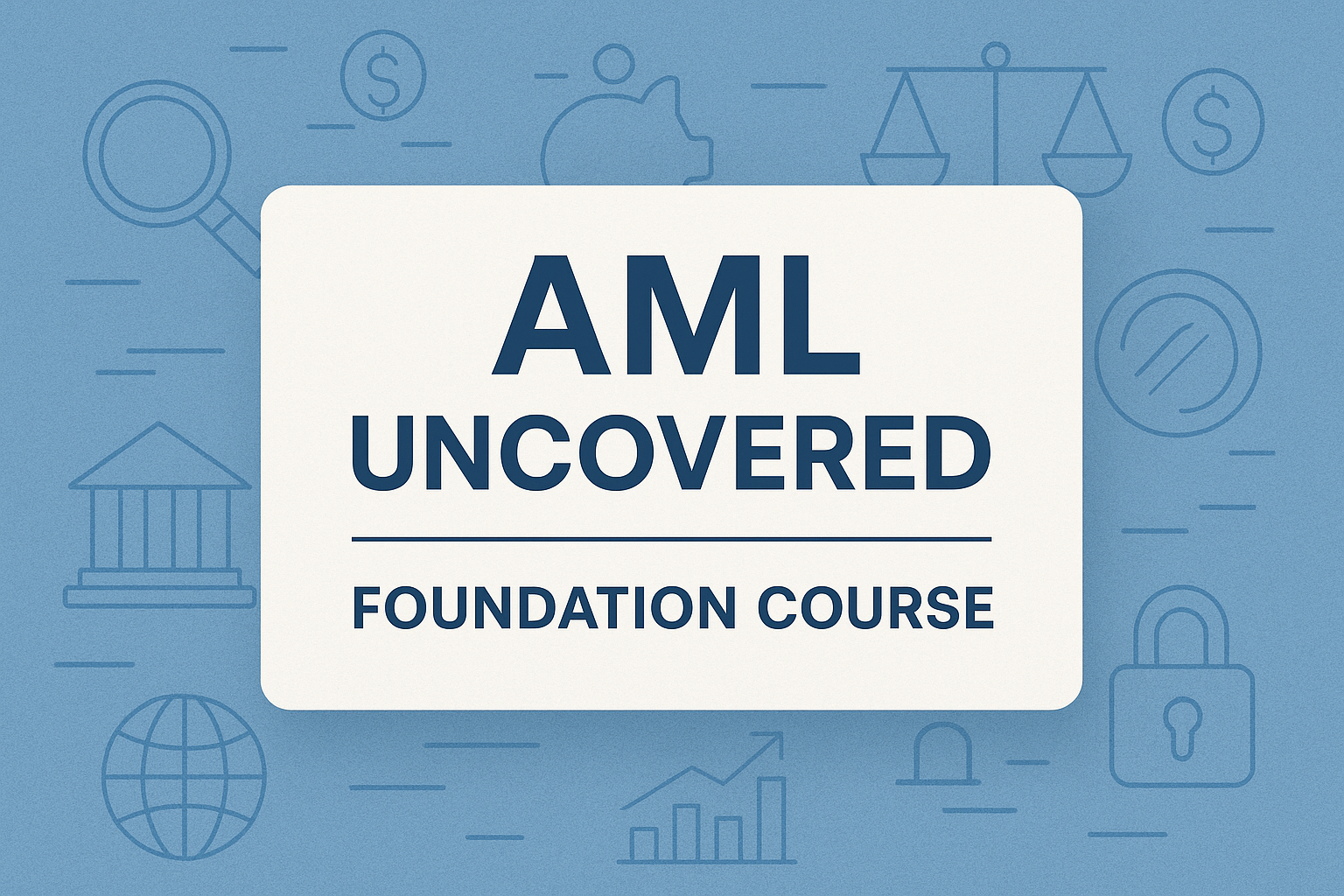
Staff Member #1
Biography of instructor/staff member #1

This foundation course is designed for professionals seeking a solid understanding of Anti-Money Laundering (AML) and financial crime. Participants will explore the fundamentals of AML, key risks and red flags, global standards and regulatory frameworks across the U.S., EU, and APAC, as well as the essentials of building an AML compliance program. The course combines theory with real-life case studies, practical exercises, and assessments to help learners recognize money laundering schemes and apply effective compliance practices in their professional roles.
Introduction to Anti-Money Laundering (AML)
What is Money Laundering and Financial Crime?
Differences Between Money Laundering, Terrorist Financing, and Predicate Crimes
Common Techniques of Money Laundering (Placement, Layering, Integration)
Understanding Predicate Offenses: Fraud, Drug Trafficking, Corruption, etc.
Case Study: Crestline Ventures – A Retail Laundering Ring
Red Flags in Banking and Nonbanking Transactions
Sanctions Evasion and Compliance Overview
Politically Exposed Persons (PEPs) and Ultimate Beneficial Ownership (UBO)
Risk Types: Operational, Legal, and Reputational
Case Study: MetroSync Bank – Wire Transfer Anomalies
Global AML Framework: FATF, Egmont Group, UN, IMF
Key FATF Recommendations (Introductory Level)
Overview of U.S. AML Regulations: BSA, Patriot Act
Introduction to EU and APAC AML Guidelines
Case Study: Zelcom Payments – Noncompliance Consequences
Components of a Basic AML Compliance Program
Introduction to the Three Lines of Defense
Role of MLRO and Reporting Channels
Overview of KYC, CDD, and EDD Basics
No prior AML or compliance experience required.
Basic understanding of financial services is helpful but not mandatory.
Good command of English (reading and comprehension).
Access to a computer with internet connection for online materials and assessments.
Willingness to engage in case studies and practical exercises.

Biography of instructor/staff member #1

Biography of instructor/staff member #2